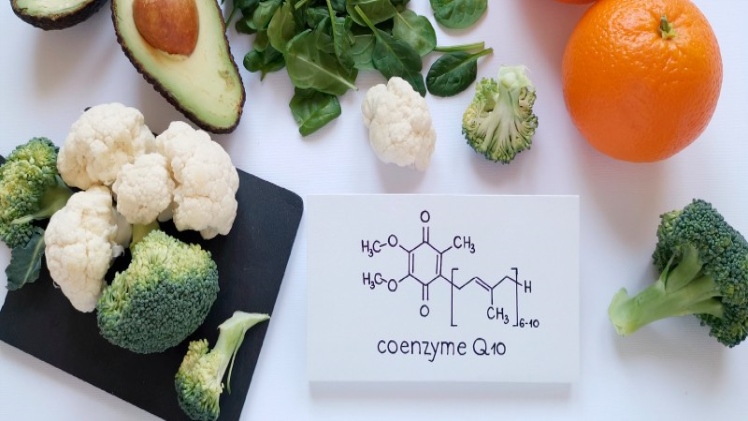Heart disease is among North America’s top two killers. It often starts with hardening/narrowing of the arteries (also called atherosclerosis) and high blood pressure. This reduces blood flow through the arteries that supply oxygenated blood to the heart. There are some supplements like nattokinase supplements that promote heart health.
Some studies have suggested that up to 70% of North Americans are deficient in this nutrient and there is also a correlation between patients with high blood pressure and having low CoQ10. Could this be a coincidence? Could there be a correlation between CoQ10 levels and heart health?
You may be interested to learn that CoQ10 is one of the most studied nutrients, particularly for its benefits to the heart. Read on to learn why CoQ10 is so beneficial for heart health.
Your heart is your body’s most important muscle
The heart is the body’s most important muscle, working hard to pump blood that delivers oxygen and important nutrients throughout the body. CoQ10 is an important nutrient for many bodily functions, including energy production in cells throughout your body.
Your heart has high energy needs so your heart muscle contains more CoQ10 than any other organ in the body
Your heart has high energy needs so your heart muscle contains more CoQ10 than any other organ in the body. CoQ10 is a critical component of the energy production process in the heart and helps to produce energy in the form of Adenosine Triphosphate (ATP).
CoQ10 is involved in ATP production which is necessary for heart function
The human body requires CoQ10 to produce energy. Known as the “powerhouse” of each and every cell, the mitochondria are where ATP is synthesized. ATP is the primary coenzyme used for the production of energy. Without CoQ10, you cannot produce energy.
Your heart requires ATP. In fact, it is its primary energy source. It is estimated that up to 70% of your body’s ATP is used to fuel the contraction of the heart. However, the stores of ATP in the heart are low and can be exhausted in just a few pumps.
Volumes of research show that CoQ10 is beneficial for heart function
Research shows that taking CoQ10 supplements can help support conditions like high blood pressure, angina and narrowing of the arteries.
High blood pressure: (hypertension) is a common condition where the pressure inside your arteries increases to an unhealthy level. This puts stress on your heart which can lead to heart disease or even stroke. Research has shown that patients with high blood pressure also have low CoQ10 levels. CoQ10 has been shown to act as a natural blood thinner, help prevent the oxidation of cholesterol from free radicals and relax the smooth muscle in the veins, which can help to support healthy blood pressure.
Angina: When your heart doesn’t get enough oxygen-rich blood, it can cause chest pain or discomfort called angina. The most common symptom of angina is chest pain or discomfort. Angina occurs when blood vessels that supply the heart with oxygen become narrow or blocked, reducing blood flow to your heart. This lack of oxygen causes temporary pain and discomfort in your chest. CoQ10 helps to enhance the production of energy in your heart muscle, helping your heart pump blood more efficiently.
High Cholesterol: You probably know that high cholesterol is a risk factor for heart attacks and stroke, but did you know that the “bad” cholesterol is harmful because it is far more prone to oxidative damage from free radicals than the “good” HDL cholesterol? Once oxidized, LDL cholesterol then damages arteries, causing lesions to form, eventually causing arterial blockages that can lead to a heart attack or stroke. CoQ10 can prevent this. As a fat-soluble antioxidant, CoQ10 can protect the bad LDL cholesterol from free radicals.
Hardening and narrowing of the arteries: Atherosclerosis is a disease of the arteries in which plaque builds up on their inner walls to reduce blood flow through them. When this happens, your body loses some or all ability to get oxygen-rich blood to your heart muscle or brain. This can lead to a heart attack or stroke, two major causes of death in North America today. CoQ10 can help improve energy production and antioxidant activity, as well as improve endothelial function by reducing blood platelet size. This can result in increased blood flow through the body’s blood vessels and better overall cardiovascular health.
You can get some CoQ10 from foods like mackerel, pork and beef. But much of your daily requirement of CoQ10 will need to come from supplements.
Ubiquinol is preferred by practitioners because it acts as an antioxidant to protect against free radical-induced damage to DNA, lipids and proteins. Doses of CoQ10 and ubiquinol will differ. Because ubiquinol is the better-absorbed form of CoQ10, it is sold in lower doses. When looking for a ubiquinol supplement, look for a quality softgel, like Ubiquinol QH Active CoQ10 by Natural Factors. It’s mixed in a base of flax seed oil and uses Kaneka CoQ10, which is the most recognized and researched coQ10 in the world.
In conclusion, CoQ10 is one of the best ways to strengthen and protect your heart from damage. Supplementing with CoQ10 can be a good idea, especially if you have any type of heart condition or history of heart disease.
Disclaimer: The information in this article is intended for educational and informational purposes only and should not be considered as a substitute for medical advice. Please consult your practitioner prior to taking herbs or nutritional supplements.

